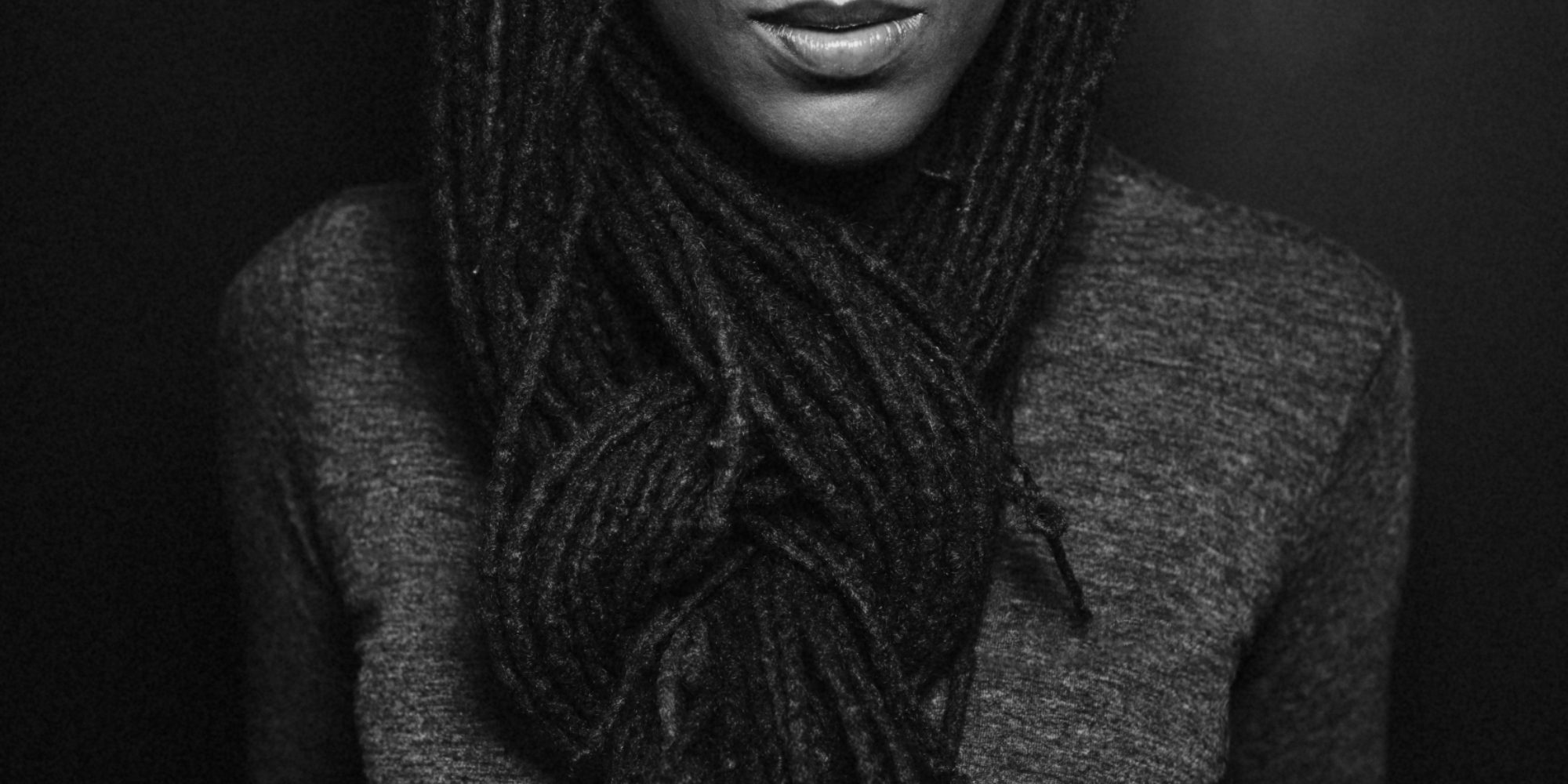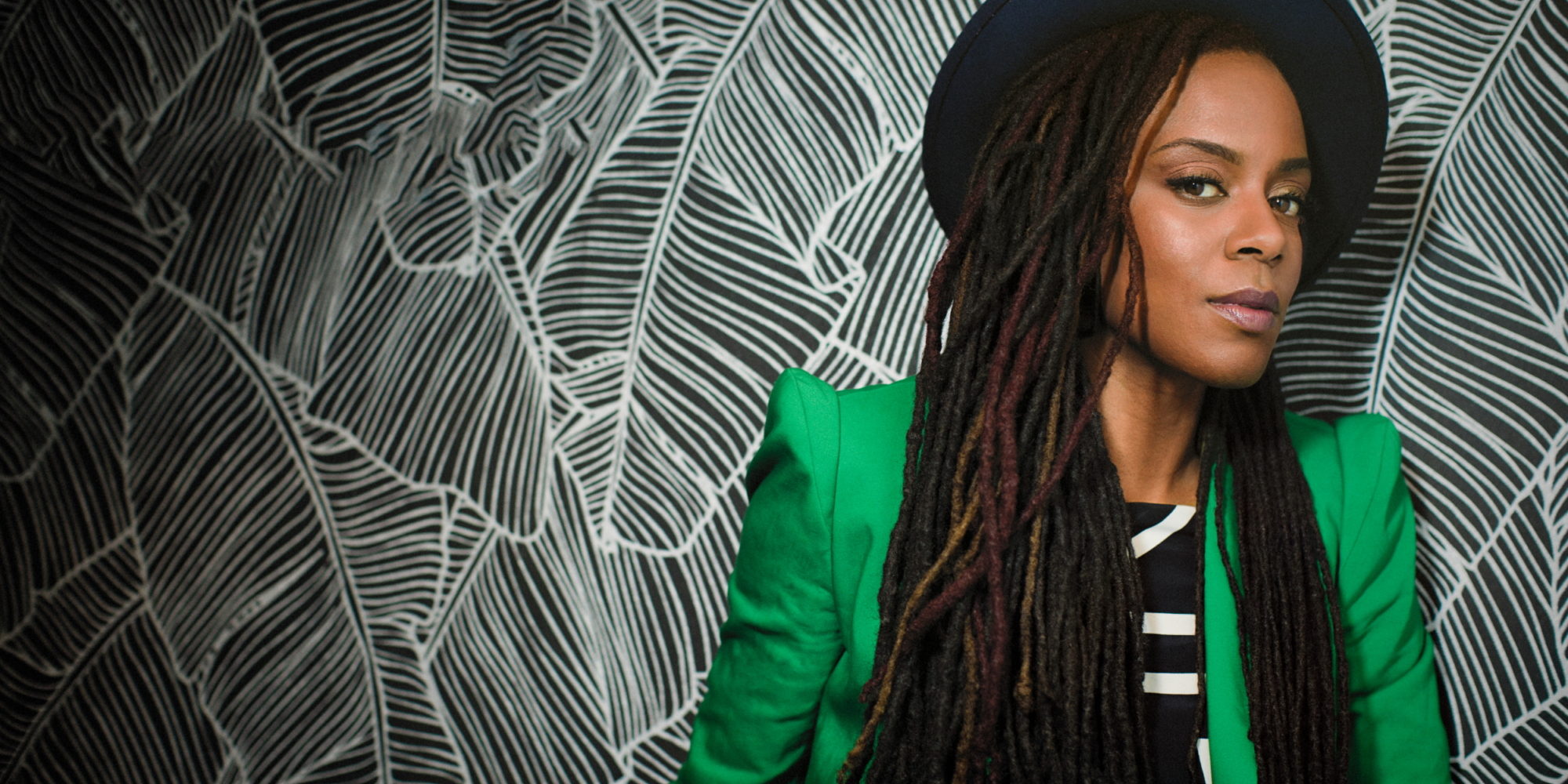Akua Naru has been rapping and performing spoken word since she was a child. Growing up in New Haven, Connecticut, she was inspired by the strong women in the black community. Through her lyrics and verses, as well as through workshops, she focuses on black women’s empowerment, as well as honoring the ancestors who she gives voice to now. With her album, The Blackest Joy, she becomes a creative vessel for those who weren’t able to express themselves. Now, she’s working on several projects, including planning for Harvard’s prestigious Nas Fellowship. In this interview, Akua discusses her inspirations, recent changes in the music industry, and her plans for the future.
Danielle Krieger: So, what inspired you to become a musician as well as a poet, and are the two separate or intertwined?
Akua Naru: I’ve always loved to read, as a little girl I always read a lot. I always had a love for language, and through being a reader I became a writer. I wanted to write and influence what was read through stories that I could tell myself, things that I wanted to hear, sides of the story that I wanted to tell, whatever. It was the case that I just loved and had a talent for writing poetry. And for music, that’s the thing about hip-hop or spoken word, it’s musical. So at some point, I would recite my poems, and then the recitation became more rhythmic, and I think in terms of making music, I don’t know if it was really a decision. This was something I could do and I was celebrated for doing it. In my family, in my community, and so I kept doing it and at some point there were more opportunities for me to combine my musical poetry with music. And I just kept going and it just kept growing. Yes, they are intertwined. All of it is expression, is art. And it’s coming from the same source.
What community did you grow up in?
Well, I’m from New Haven, Connecticut. I grew up in the black community, black American community. I come from a very church family, very South, Pentecostal, holiness church community.
So in what ways did the black community support you and encourage you?
Every way! That has so much to do with who I am today! You know, it can’t be quantified. In every way. From our church to how we worship, how children are celebrated, during the holidays, for standing up and reciting poems. Performing before the choir. My church had a lot of powerful women. I mean, our pastor is a woman to this day. The choir director. My grandmother runs Sunday school. So, I grew up in a space where women, black women, were running shit. So of course, you know, what you see is important for how you see yourself and the ways in which you locate yourself from childhood to adulthood.
Definitely. And what difference does music make for songwriting vs. poetry? Does it change the expression? Do you find that you’re able to express things in a different way?
No. I think whatever I need, sometimes something comes to me and I just sing it… I feel something, and I have a melody. Because normally, for all of the songs that I have I pretty much wrote the melodies, like the choruses, and I just sing them and then I find other people to sing them for me, but it was clear that when it came to me, in whatever way it came, it was a song. It was supposed to be sung. It wasn’t rap, it wasn’t poetry, or it wasn’t a guitar solo. Just whatever way it comes, I try to keep it pure to however I feel, however I feel it to be, and just communicate it in that way.
It’s like an intuition or something.
Yeah, it’s coming from a higher power. Where does art come from? When you go to the Sistine Chapel, how could a human being have created that? Where is it coming from? This is a question for the ages.
It’s a hard one. So when did you start working on The Blackest Joy?
I started working on The Blackest Joy in New York, in August 2016.
Was there something that inspired you at the time to write about black joy?
So the last album, The Miner’s Canary, I wrote from a darker place. Because I love my people. So when things happen, on the news, we know the reality. I mean it was only 400 years. And my heart is heavy. You watch these videos as they’re being posted online. Of course, you retraumatize. And just through spending more and more time in Africa, and finding peace on the continent, I was thinking about the power of joy, a black joy. Why that’s so important for us as a form of resistance, as a political act, as a force in and of itself. And I was also coming out of the space that I was in with the last album, and I was also learning to carve more space for joy. Really, really, really understand how that feels when I swallow it, when I gobble it down, when I’m housing it here in this body. So obviously, the music was going to reflect that as I was inquiring. And this album is itself the blackest joy.
And you mentioned that you were in Africa, and you’re also going to Senegal soon, and aside from performing, you’re going to be teaching workshops in women’s empowerment. So, what do you teach in your empowerment classes?
I teach a lot. I’m learning, I’m really learning mostly. You know, I do a lot of work with women in different parts of the world. Like working with women, you know. Sometimes, with black women healing circles. Talking about hip-hop workshops, talking about sexism in the music industry. Understanding all kinds of things. I just gave a talk on Sunday, in Berlin, about African spiritualities with regards to hip-hop and so on. Mostly I’m learning, I’m learning.
I saw on a blurb that you had felt “a void regarding the female voice in hip-hop.” So have you felt that people were more receptive to female voices in hip-hop since you started??
Absolutely. I think back, way, way back in the day, people were having conversations like, “This is a woman. Can she rap?” and there may be some really silly-minded people who really believe that foolishness. That’s completely absurd, that’s ridiculous. I don’t know if there are people still debating that. I don’t know. I have no access to that because the places where I go, people are ready. And there are a lot of people who are here for good music, period. Like if you love hip-hop, if you love jazz, if you love great music, you’re gonna be open for whoever is bringing it. Toni Morrison is the greatest living writer. And this is a woman, a black woman with long dreadlocks. How could you not believe that a sister, a woman, a black woman, could come in and kill [dominate] the cipher real quick? It’s completely absurd to think otherwise. Harriet Tubman was free and led us to freedom, but I can’t rhyme in sync? That’s completely absurd. I don’t know if that kind of opposition, I know that it does exist, but in the circles, in the places where I enter, you know what I mean, the crowds that are expecting me, and the people who support the music, they are here for good music, and they are ready, and people are carving more and more space for women’s voices. I feel like that’s absolutely wonderful.
So what do you hope to accomplish musically through your music as well?
Well, I’m here to honor the ancestors. That’s what this is about. It’s about a few more things, but at the core, at the root, I’m here to honor the ancestors. I’m here to give voice. You know what I mean, I’m here to speak my truth, I’m here to honor the ancestors.
What are you planning to do with the fellowship that you received from Harvard?
Yes, I won the Nas Fellowship at Harvard. I’m working on a project called the Keeper Project. I’m doing a multimedia archive and it has to do with women in hip-hop, it has to do with chronicling, archiving black… I feel that I’m a keeper of the tradition, and there are a lot of others who are keepers of the tradition. So it’s called the Keeper Project, and it’s going to be an online multimedia archive for black women hip-hop artists.
And what’s next on your agenda?
I’m doing a lot. I’m on tour. I’m working on the next two parts of the video series. Working on the Keeper. And trying to understand what life is like in Boston. I’ve got a lot of tricks up my sleeve.
Thank you.
Related Articles










